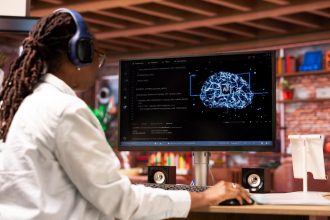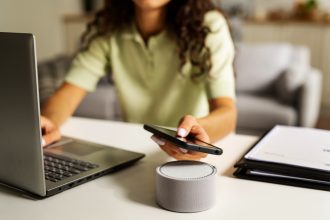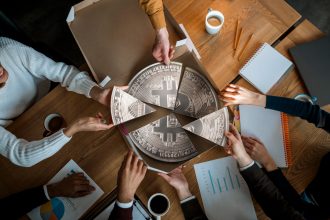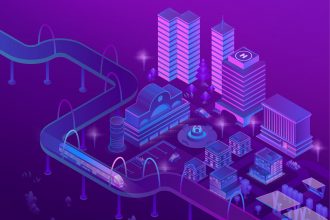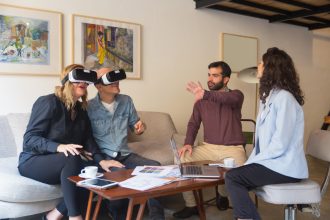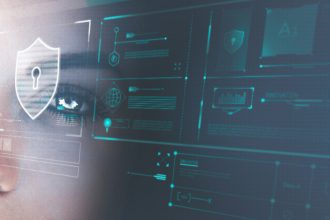When most people hear the word “blockchain,” they immediately think of Bitcoin or other digital currencies. While it’s true that blockchain gained public attention through cryptocurrencies, its true power extends far beyond the realm of digital money. At its core, blockchain is a distributed ledger system designed to maintain secure, transparent, and unchangeable records. These qualities make it a versatile tool for industries far removed from finance, where trust, authenticity, and data integrity are critical. Modern organizations increasingly recognize blockchain not just as a speculative financial trend, but as a digital backbone capable of reshaping institutional efficiency and resilience.
Supply chains, for instance, are becoming more complex and globalized, which increases the risk of counterfeiting, fraud, and inefficiency. Blockchain enables participants across different corners of the world to record the journey of goods—from raw materials to the consumer’s hands—on immutable ledgers. This increases trust, improves transparency, and lowers the likelihood of fraudulent substitutions.
In healthcare, the decentralized nature of blockchain offers a solution to one of the sector’s persistent problems: fragmented patient records. By enabling patients and medical professionals to access tamper-proof, compliant health data stored on blockchain, care becomes more accurate and efficient, and patients retain greater control over their own information.
Governments, too, are tapping into blockchain to restore citizen trust. Digital voting systems powered by blockchain can make elections more secure, reducing fraud risks and increasing voter confidence in democratic processes. This introduces a tamper-resistant way of confirming votes and maintaining the legitimacy of electoral outcomes.
Similarly, creative industries are increasingly leveraging blockchain to safeguard intellectual property rights. Artists, musicians, and innovators are using blockchain to timestamp and register their work, making it far harder for unauthorized use or plagiarism to go undetected.
Even education is seeing a blockchain-driven evolution. Universities and training institutions now issue verifiable digital diplomas stored on distributed ledgers. These credentials can be instantly validated by employers across the globe, reducing the problem of forged qualifications.
In short, blockchain is transitioning from being merely a tool of finance to a universal medium of digital trust. Its expansion across supply chains, healthcare, government, intellectual property, and education reflects a broader shift towards transparency-driven economies. As trust becomes a central currency of the digital age, blockchain is increasingly valued not just as a disruptive innovation but as a stabilizing infrastructure that underpins future growth.
To understand blockchain’s growing role, it’s useful to explore case studies where it has moved from abstract theory to tangible implementation. These real-world examples reveal why blockchain is increasingly considered a technology for the future of trust.
1. Global Supply Chains and Anti-Counterfeiting
Companies like IBM and Maersk have collaborated on blockchain solutions for global shipping. By recording every step of logistics transactions—container deposits, customs verification, transits, and deliveries—suppliers and customers alike gain real-time visibility. Luxury brands also use blockchain to confirm authenticity. For instance, high-end watchmakers record every detail of their products so customers can verify genuine items with a simple scan.
2. Food Safety and “Farm-to-Table” Transparency
Blockchain provides more than logistical record keeping—it enhances consumer confidence in food origins. Walmart, for example, has worked with farmers and food suppliers to track produce from fields to store shelves using blockchain. This allows quick identification of contamination sources in case of outbreaks, ensuring both safety and accountability. It also gives consumers peace of mind by allowing them to trace their groceries back to their origins.
3. Government Identity Services
Several nations are exploring blockchain-based identity systems. Estonia, known for its digital governance leadership, has pioneered blockchain-secured ID solutions that streamline citizen services, tax filing, and medical access. This reduces bureaucracy and enhances citizen-government trust while protecting identities through immutable records.
4. Healthcare Data Integrity
Hospitals and clinics often struggle to share patient information securely. Blockchain projects such as MediLedger and BurstIQ offer platforms for managing medical records with strict privacy compliance. Patients gain a portable, tamper-proof health identity, ensuring accurate diagnosis and continuity of care across multiple providers.
5. Renewable Energy and Peer-to-Peer Trading
The energy sector is also embracing blockchain. In Brooklyn, New York, the Brooklyn Microgrid project allows residents to trade solar energy directly through blockchain. This lowers costs, promotes renewable adoption, and creates localized, resilient energy systems—all facilitated by transparent digital ledgers.
6. Fraud-Proof Academic Credentials
Fraudulent diplomas are a global concern for employers. To address this, the Massachusetts Institute of Technology (MIT) has issued blockchain-based digital diplomas. Employers can instantly verify a graduate’s credential online, eliminating doubt and reducing administrative burden. Similar blockchain initiatives are expanding to other universities around the world.
Conclusion
These case studies highlight how blockchain technology is no longer confined to cryptocurrency exchanges but is steadily becoming a trusted infrastructure for industries as diverse as logistics, healthcare, governance, energy, and education. Its key benefits—immutability, transparency, security, and decentralization—solve long-standing problems while opening new pathways for collaboration and trust in digital ecosystems.
In a world where information integrity and transparency are increasingly seen as non-negotiable, blockchain stands out as a solution whose relevance will only grow. By embracing blockchain not as a speculative tool but as a practical infrastructure, industries are laying the foundation for an economy built on trust, efficiency, and shared value far beyond digital currencies.


